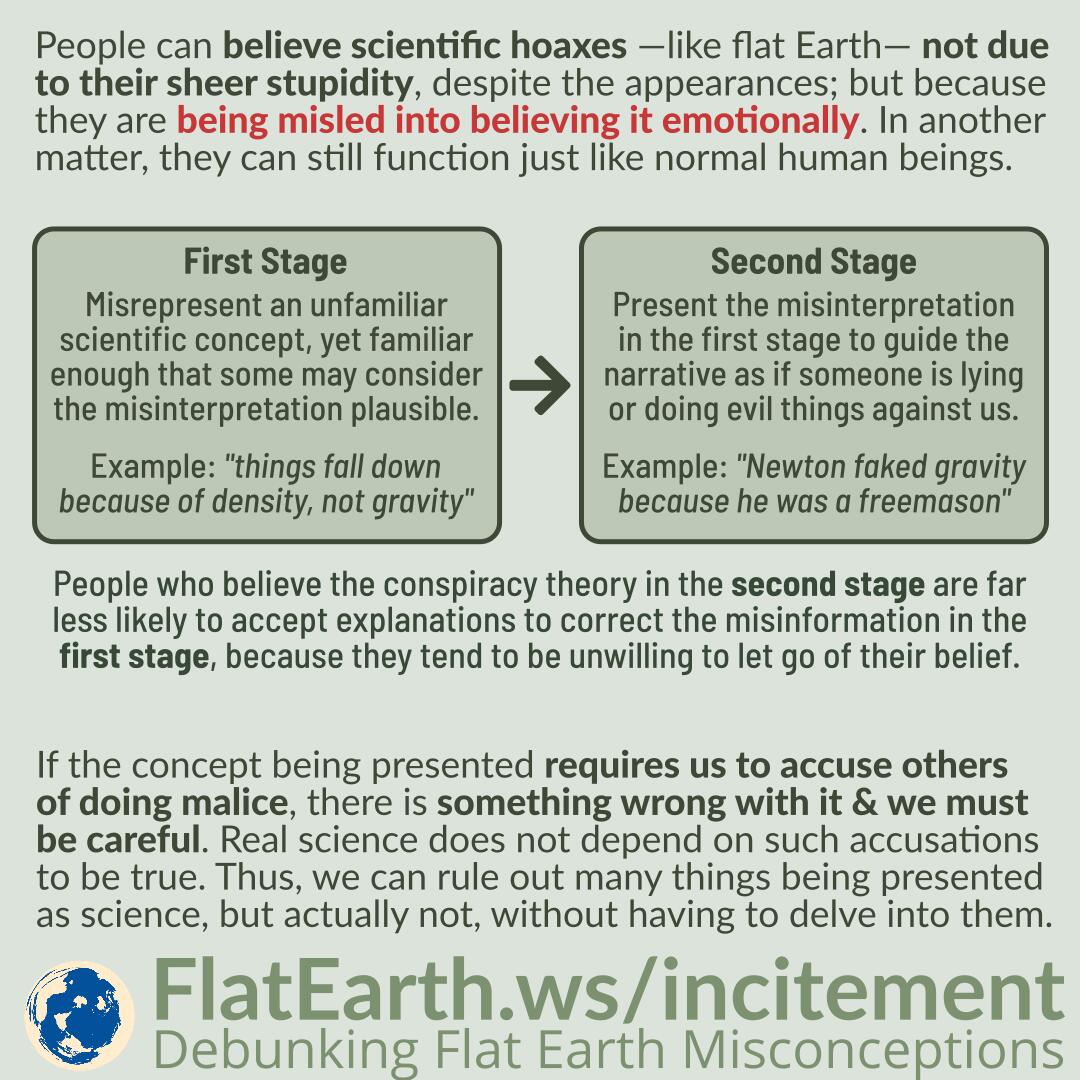People can believe scientific hoaxes —like flat Earth— not because of their sheer stupidity, despite the appearances; but because they are being misled into believing it emotionally. In another matter, these people can still function just like normal human beings.
If the concept being presented requires us to accuse others of malice before we can accept the concept, there must be something wrong with it, and we must be careful. Real science does not depend on such accusations to be true. And thus, we can rule out many of the things being presented as science, but actually not, without having to delve deep into them.
The process of misleading can be divided into two stages. In the first stage, the perpetrator attempts to misrepresent an unfamiliar scientific concept, yet familiar enough that some people might consider the misinterpretation of it to be plausible.
In the second stage, these people will present the misinterpretation of science in the first stage to guide the narrative as if someone is lying or doing evil things against us. In many cases, they would present it as if we know the supposed “wrong science” today because someone is lying.
People who believe the conspiracy theory in the second stage are far less likely to accept explanations to rectify the misinformation in the first stage. By then, the belief has become entrenched, and they tend to be unwilling to let go of their belief.
They are aware the emotional second stage depends on the misinterpretation in the first stage. And to defend this emotional state, they need to keep believing the wrong science. It is the reason they will attempt to defend the wrong science at all costs. Not because they are too stupid to understand that it is wrong, but because it is a prerequisite to fulfill their emotional desire to accuse others of malice, which is provided by the second stage.
By staying alert and being able to calmly identify these accusations of malice inserted by the perpetrators to a seemingly plausible scientific concept, we can quickly rule out many pseudosciences masquerading as real sciences, without having to become an expert in the scientific concept themselves. It is impossible to become an expert in every topic, but we can easily avoid becoming victims of emotional appeals.


